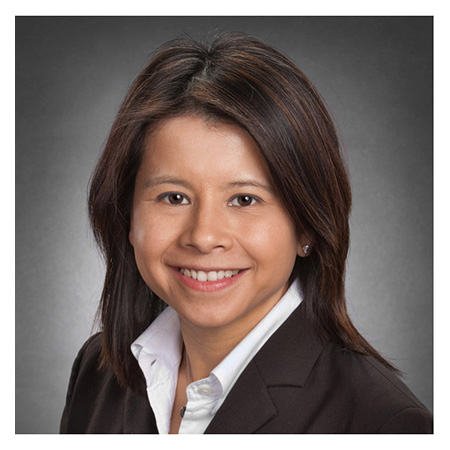Illuminating the Role of Fungi in Chronic Rhinosinusitis
 Amber Luong, MD, PhD, professor and vice chair for research in the Department of Otorhinolaryngology at McGovern Medical School at UTHealth Houston, is the senior author of an invited review article on the controversy surrounding the role of fungi in chronic rhinosinusitis. The review was published as the cover story of the November 2021 issue of the International Forum of Allergy and Rhinology (IFAR), the official journal of the American Academy of Otolaryngic Allergy and the American Rhinologic Society.
Amber Luong, MD, PhD, professor and vice chair for research in the Department of Otorhinolaryngology at McGovern Medical School at UTHealth Houston, is the senior author of an invited review article on the controversy surrounding the role of fungi in chronic rhinosinusitis. The review was published as the cover story of the November 2021 issue of the International Forum of Allergy and Rhinology (IFAR), the official journal of the American Academy of Otolaryngic Allergy and the American Rhinologic Society.
Allergic fungal rhinosinusitis (AFRS) has been the subject of Dr. Luong’s research for more than 18 years. In commemoration of the approaching 40-year milestone since its formal recognition in 1983, Luong and her group examined the spectrum of fungi-associated sinus disease and highlighted current knowledge of AFRS, cellular interactions, and activated molecular pathways linked to fungi in the review in IFAR.
Concurrently, in 2021, during her tenure as inaugural chair of the Allergy and Immunology in Rhinology Section of the American Rhinologic Society, she organized participating rhinologists to revisit the clinical criteria for AFRS based on new knowledge of its pathology and a greater understanding of how fungi can trigger a type 2 inflammatory immune response given the implications for future clinical trials and research studies on AFRS.
“The controversy began in 1999, when researchers at the Mayo Clinic proposed that fungus was the driving force for all chronic rhinosinusitis rather than in a subset of patients with CRS,” Dr. Luong says. “It was a blanket statement that generated a lot of interest and controversy, resulting in clinical trials that enrolled all comers and found that antifungal therapies did not help in the treatment of CRS. Based on the design of these trials, it was not a surprise that they failed.”
When Dr. Luong joined the faculty of McGovern Medical School in 2009, the pendulum had swung toward the idea that fungus played no role at all in CRS. “But here in the southern U.S., it was clear to us that fungus was involved in at least some patient populations, including AFRS and possibly other patients with CRS and nasal polyps,” she says.
The development of genomic techniques in the last two decades gave Dr. Luong and other physician scientists a greater appreciation of microbiota – immunity interactions and their role in chronic inflammatory disease, including CRS, asthma, inflammatory bowel disease, and dermatitis. At the same time, the low prevalence of AFRS compared to other types of CRSwNP created difficulties in designing clinical trials for patients with AFRS.
“As a result, we still have gaps in our knowledge of the biology of the inflammatory response, and we hope future studies can fill them,” Dr. Luong says. “We believe that within the various CRS with nasal polyps phenotypes, AFRS presents an opportunity to investigate the role of fungi in chronic type 2 immune responses, as well as the antifungal immune pathways designed to prevent invasive fungal diseases.”
Tyler MA, Lam K, Marino MJ, Yao WC, Schmale I, Citardi MJ, Luong AU. Revisiting the controversy: The role of fungi in chronic rhinosinusitis. Int Forum Allergy Rhinol. 2021 Nov;11(11):1577-1587. Epub 2021 Jun 2. Review.
Kim J, Makary CA, Roland LT, Kuruvilla M, Lam K, Smith KA, Magliocca KR, Wise SK, Toskala E, Fermin JM, Pashley CH, Levy JM, Luong AU. What is allergic fungal sinusitis: A call to action. Int Forum Allergy Rhinol. 2021 Oct 30. Doi: 10.1002/alr.22911. Online ahead of print.